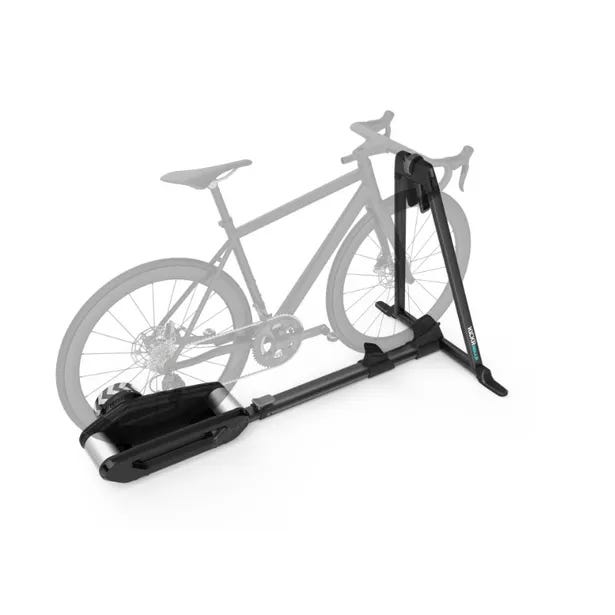FDA, Hearts, Fitbit
In this week's Rundown, an indoor bike trainer combines rollers with smarts, the FDA shows Fitbit some love by approving a heart monitoring feature, and exercise helps protect brain volume.
The Rundown
Roll On. The new Wahoo Fitness Kickr Rollr takes outdoor cycling to indoor training by combining a roller trainer with a smart trainer. A roller requires you to have good balancing skills since both of your bike’s wheels float freely, while most smart trainers require you to take off the back wheel and attach your bike to a drivetrain with an adjustable flywheel so you can change pedaling resistance. The Kickr Rollr is the best of both worlds.
On the equipment, both wheels stay on the bike, with the back wheel on rollers and the front wheel held in place by a safety tire gripper. You use an app to adjust the amount of resistance but in order to measure your output and pair the equipment with external apps like Zwift or TrainerRoad, you must install your own power meter. Alternatively, Wahoo offers a power meter through its PowrLink Zero Single-Side Power Pedals, which are sold as a bundle with the Kickr Rollr.
FDA, Hearts, Fitbit. The U.S. Food and Drug Administration has authorized a new feature for Fitbit that continuously monitors a wearer’s heart rhythms for signs of atrial fibrillation. To monitor a user’s heartbeat, the feature uses Fitbit’s photoplethysmography (PPG) sensor. A novel algorithm tracks the data for signs of atrial fibrillation, sending an Irregular Heart Rhythm Notification if it detects an issue.
The FDA authorization is based on the results of a clinical trial performed by researchers at Massachusetts General Hospital. In the trial, the team looked at the PPG detection of atrial fibrillation in over 450,000 Fitbit users then employed electrocardiogram (ECG) patch monitoring to validate the findings. The study found that 98 percent of atrial fibrillation cases detected by the Fitbit algorithm were effectively verified with ECG monitoring over the following week.
The feature will be rolled out to all devices in the United States “soon,” said Google and it is not recommended for use by those under 22 years of age.
Grey Matters. New research published in the April 13, 2022 online issue of Neurology suggests that the role exercise plays in maintaining insulin and body mass index levels might help protect brain volume, which in turn helps prevent dementia.
The study of 134 people, average age 69, who had no memory problems, involved brain scans to measure volume and glucose metabolism. The researchers also collected information on BMI, insulin levels, cholesterol, blood pressure and other factors. Physical activity was assessed through a survey the participants filled out about their exercise over the past year.
Those with the most physical activity had a higher total volume of grey matter in their brains than those with the least amount of movement. People with the most activity also had a higher average rate of glucose metabolism in the brain. (Reduced glucose metabolism in the brain can be seen in people with dementia).
Study author Geraldine Poisnel said that while more research is needed, “maintaining a lower BMI through physical activity could help prevent disturbed insulin metabolism that is often seen in aging, thus promoting brain health.”
It’s important to note that the study does not prove that exercise protects brain volume, only that there is an association. Another study limitation is that participants reported their physical activity, which they may not have remembered accurately.
Replay
This week’s vintage moment in fitness culture is brought to you by “a useful exercise for the housewife, which can be performed while making the bed.” Photo credit: Hulton Archive/Getty.






When we talk about “fitness” we seem to always assume an unspoken prefix of “physical”. Yet clearly “mental fitness” is just as important and in many instances overlapping, as you note wrt exercise, insulin and brain volume. Does FitCult also intend to cover mental exercise and fitness trends and info? (Eg “Does “Wordle”help train your brain?”)